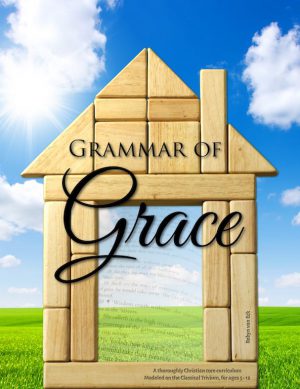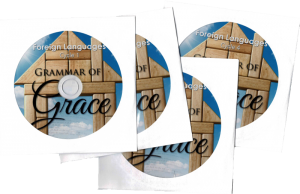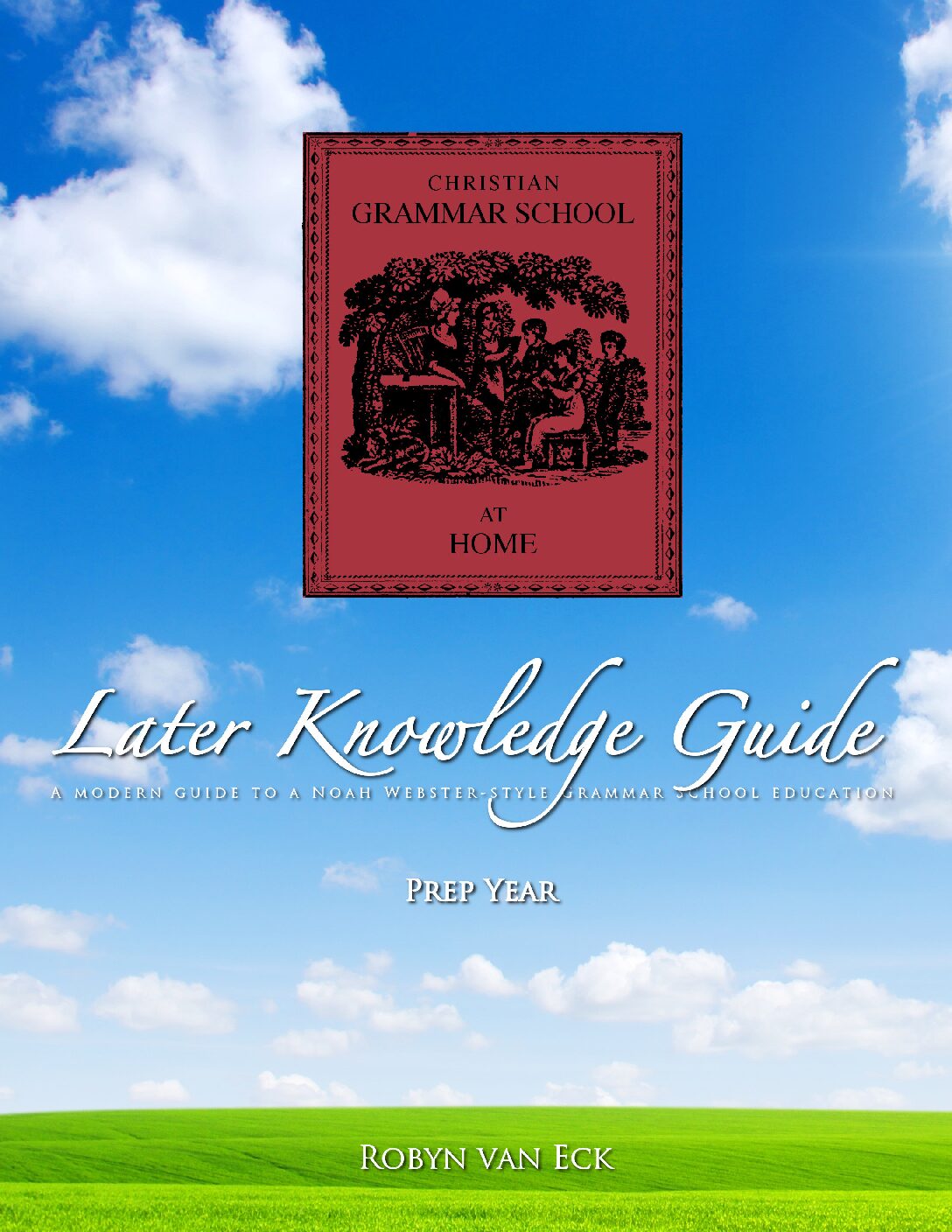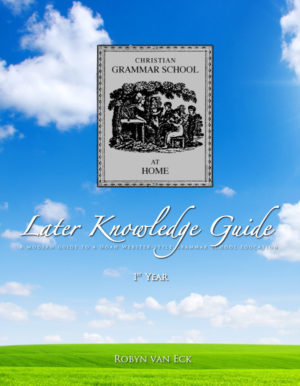Photo by Annie Spratt on Unsplash
Question
I am intrigued! I’ve been homeschooling off and on for 30 years. Lately I’ve been educating myself in Charlotte Mason. In prior years my kids had overwhelming special needs. My current 2 maybe 3 homeschoolers are 7 (math gifted) 13 & 14 (both have learning disabilities).
I’ve got everything already set up for next year for full on Charlotte Mason. Would this be compatible? Also which components do I need to purchase from your site?
And where would I place 14 yr old who is at approx 6/7th grade level and somewhat grouse and unmotivated? Also 13 who is at 3rd grade level maybe 4th and socially immature.
What other outside resources would I need?
Answer
Your homeschool sounds wonderful! Oh, may the Lord bless your work with these precious ones!
I’m going to try to answer as best I can, but please feel free to ask more, if I misunderstood or started heading in the wrong direction; I wish we could be at a homeschool convention, opening up the books and looking over things together!
I have not used a full Charlotte Mason curriculum myself, but her philosophy is absolutely complementary with what we do at Grammar of Grace. Let me make sure I’m thinking right about what you’ve already got set for next year, since there are a few different CM options out there…
I’m imagining you’ve got a full real books-based plan for each kid, starting with you reading great books aloud to all of them together, plus they also have their own reading assignments, at their own levels? Their CM curriculum has them doing copywork, learning cursive, learning reading comprehension through narration, and maybe writing summaries about what they’re reading? Is that the basic idea? The 7-YO will learn phonics (if he hasn’t already), and the 13- and 14-YOs will have assignments in literature, history, math, science, the usual subjects??
Since you’ve already got a full curriculum going, I think you would want to get our main curriculum, Grammar of Grace, which is mainly comprised of memory work, and then if you’re not familiar with classical Latin, Greek, and Hebrew yet, you’ll probably also want to get the foreign language audios.
With the main Grammar of Grace curriculum, you’ll spend about 30 minutes doing memory work with the kiddos each day, all together. Then, you’ll use the Bible Reading Plan, which is about 15-20 minutes of reading every day, again with all of the kids together. So it’ll make your read-aloud times a little longer than they already are, but won’t cause a huge extra burden (and it’s wonderful!).
Question for you: Have your older kids done very much memory work before??
With your 7YO, that’s about all there is to it. You’ll see when you dig into the curriculum itself, but the work is light for the little ones, and since you’re already reading good books aloud, that pretty much covers everything.
As for your older ones…. Grammar of Grace approaches education the way folks used to in the past; the Later Knowledge Guides start with 1st Year, no matter how old a kid is when he starts, and he might progress through more quickly or slowly, as he is able. Typically, for children who started with Grammar of Grace all along, they’ll start the 1st Year Later Knowledge Guide around age 10 or 11, which might be the equivalent of 5th or 6th grade. (But like I said, it really doesn’t correspond to the modern idea of grades; there’s more info about this approach here.)
On the one hand, the Later Knowledge Guides are full curriculums, so you’ve already got most of that covered with your CM curriculum. But that said, they’re priced cheaply, so if you want to get one and only pick a few old-fashioned subjects to supplement your CM curriculum, I think you might like to do that.
I would think about getting the 1st Year Later Knowledge Guide for your 14-YO, and these are the subjects I would be thinking about adding in (if you’re not already doing this stuff!):
Daily assignments:
- Reading Aloud (uses Webster’s Blue Back Speller), 10 minutes daily
- Dictation (uses Webster’s Blue Back Speller), 20 minutes daily
- Oral Interpretation, 5 minutes daily, & “perform” for the family once a week
- Daily Bible Reading (students read the book of Matthew over the course of the year, about 10 verses a day, and write a short summary each day)
Weekly assignments:
- Greek, 30 minutes once a week (uses A Greek Alphabetarion & A Greek Huppogrammon, both by Harvey Bluedorn)
- Worldview, 30 minutes once a week (uses What Does the Bible Say About That?, by Kevin Swanson)
- Journal & Letter Writing, 30-60 minutes, once a week
Fair warning: At first, the assignments in the 1st Year LKG seem REALLY easy, especially in the Blue Back Speller! Don’t worry, even though it might seem way too easy at first, it gets the kids used to doing these old-fashioned assignments, and it’s very systematic, so it makes sure you don’t skip over anything, and before you know it, they’re stumbling over tricky spellings and stuff, and you realize, hey, they really are learning good stuff here. 🙂
Question for you: Does your CM curriculum teach the structure of the English language or Latin? In the old Christian classical education days, children were taught the structure of language because they learned Latin, which is amazing for that, because the word “dog”, for example, has 10 different forms, depending on whether it’s the subject, direct object, indirect object, object of a preposition, or possessive, and singular or plural, in a sentence. So learning Latin meant learning the structure of language; it’s really helpful.
When Latin dropped out of our standard elementary-age curriculum, people created sentence diagraming, to make up for that loss. (If you already know all of this, forgive me for the repetition!) In the GOG Later Knowledge Guides, we teach English Grammar and Latin, and the two subjects complement and reinforce each other beautifully, week by week. The English Grammar subject usually takes 15-30 minutes every day, and the Latin assignments are 30-60 minutes (depending on how focused and motivated the students are). If you’ve already got a full slate going, I don’t want to pile on! But studying these two subjects is very, very valuable, so if you have an opening for something along those lines, those would be the next two I’d want to add in for this kiddo.
If you didn’t learn these subjects in school yourself (like me!), you can teach these subjects by “taking” the classes right alongside your child. Without knowing too many details, “taking” a couple of old-fashioned “classes” together with your child might be a good opportunity for helping with a negative attitude about learning; I still have to be very patient with my kiddos (because I am a better student than they are, so I get most of the answers faster!), but spending that time as “students” together has been helpful for us.
English Grammar and Latin can seem like scary hard subjects, but they’re broken into little bites every day. For Grammar, GOG uses Our Mother Tongue, by Nancy Wilson; and for Latin, we use Artes Latinae, by Waldo Sweet (which, again, you can teach if you don’t know ANYTHING about Latin, by just taking the course side-by-side with your child).
I would maybe be thinking about the Prep Year Later Knowledge Guide for your 13-YO, but I think you probably already have most of that material covered in your CM curriculum! 🙂
So, if you followed this plan, you’d get from GOG:
- Grammar of Grace
- Grammar of Grace audios (also available as downloads)
- possibly: 1st Year Later Knowledge Guide
As my grandmother would say, is that clear as mud? Please feel free to reach out if you have any more questions!
Follow-Up Question
Artes Latinae—what ages is this for? What do you like about Artes over the other Latin programs?
Answer
Artes Latinae was written for high schoolers. It was written in the 60’s, so by then Latin was long gone from grammar school-age, and the author was definitely aiming for the high school group. That said, we use it for our older grammar school students, the way they used to, back in the day. On average, the our Later Knowledge students start it around age 10 or 11 (with the 1st Year Later Knowledge Guide), and they do great with it.
I like it for a couple of reasons. For the biggest one, you don’t have to know a lick of Latin to teach it. That was a non-negotiable for me, since I didn’t know any Latin!!!! But now that I’ve used it, I think it’s really, really good.
When I was learning French in school, every week started with a new list of vocabulary we had to memorize. But Artes Latinae teaches by baby step immersion. So he teaches us to memorize 4 tiny Latin quotations, and as we’re learning them, he teaches us what they mean. He uses pictures. He encourages thinking. You have to do two whole years of it before you learn the entire nominative-accusative-ablative-dative-genative paradigms for all of your nouns, and by then, they all MAKE SENSE, and we’re ready to learn them. There is definitely vocabulary to learn; he introduces it organically, but we do need to go back and study everything and make sure we’ve learned it before each test. But there’s never a big scary list to learn, it’s always in a context where we’re learning to think, to reason through it all.
And I especially love that, because I really believe that, after teaching our children God’s word and how to live in faith and obedience to God, I want them to learn how to think—then they’ll be able to learn anything else, you know? So, you don’t have to know any Latin, the method is organic, and the method emphasizes thinking/reasoning.
Word of warning—this may not be a big deal to you, but full disclosure! Artes Latinae uses the classical (reconstructed) pronunciation. And Grammar of Grace does, too, in the audios. But you don’t have to use the audios; you can just pronounce it yourself (and it sounds like you totally can!), if you guys are using ecclesiastical, and like that better. ?
Follow-Up Question
I read some of your blog posts after I messaged you so I think I got a better feel for the method used in the G of G for the languages. The thing I did NOT like about [another curriculum] is their heavy use of workbooks, fill in the blanks,. etc
Answer
Whoa… Then maybe you would like A.L. better. There are really no workbooks at all. BUT we create our own Latin notebooks as we go. So whenever we learn a new noun, we add it to our Nouns section, and write out all the forms that we know, so far. It’s very self-directed, but since a lot of moms never learned foreign languages, there is a section in the back of the Later Knowledge Guide that kind of does some hand-holding, telling the kiddos (& moms who’re taking A.L., too) what they need to write in their Latin notebooks.
For real, when it’s test-taking time, I usually want the kiddos to do a lot of writing, but as a form of self-quizzing. So no workbooks, but I don’t want to mislead at all—there are days when we definitely put some serious time in writing out our vocabulary, to drill ourselves… ?. But since it’s self-quizzing, you never feel like you’re doing busywork.
I really do love it, though!!
…
Thanks for dropping by; please keep us in prayer!
Recommended Resources
-

Grammar of Grace
$89.00 – $148.00 Select options This product has multiple variants. The options may be chosen on the product page -

Grammar of Grace Foreign Languages Cycles 1–4 audio CDs (Bundle)
$24.00 Add to cart



